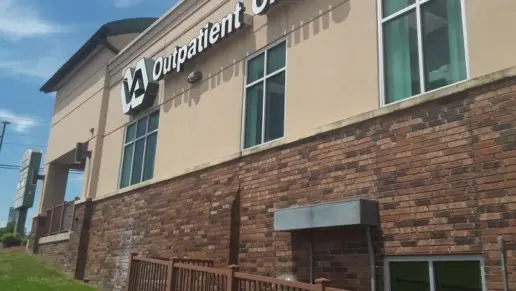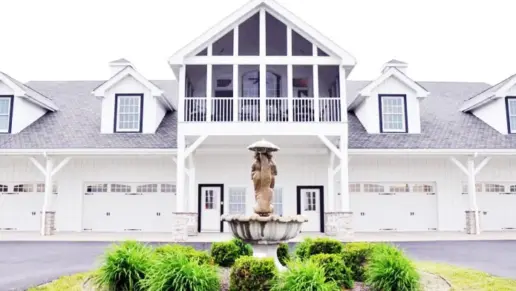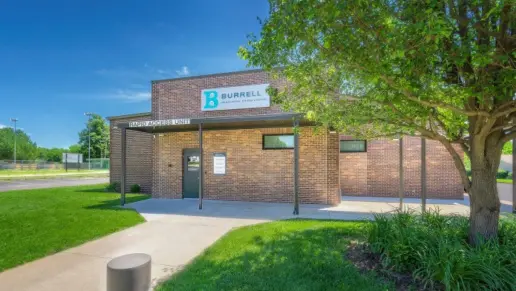About The HOUSE
The HOUSE is located in a secluded corner near Joplin, Missouri, right near the regional airport. They offer hope to individuals who have issues with substance misuse. They’ve been offering these services to their community since 1996. This structured program can help you get support and rebuild your life, work towards your goals, and reintegrate yourself into the community as a productive and healthy individual.
Sober to the Core
They have several core programs that really caught my eye due to their diversity and range of treatment. These programs are all interconnected but address very different aspects of recovery.
First, their housing program provides stable accommodations in order to help you lessen the daily stresses of your life that may be interfering with your recovery. It also helps you focus on your recovery journey.
Next, their opportunity program assists individuals in coming back into the job market. But in order to do that, they will have to help you build up your self-esteem. On top of this, you’ll get a chance to double down on your sobriety through your employment.
Unity and Education for All
Their unity program does a good job of building emotional toughness and a feeling of belonging with the community you’ll be surrounded by while helping you practice socializing again.
The service program helps you give back to the community, and it’s good practice for focusing on helping others, which in turn can help you.
Finally, their education program offers tools for personal growth and can help you gain confidence and overcome difficult challenges.
They also have a veteran program that helps with transportation to VA hospitals and provides counseling and case management.
Rehab Score
Other Forms of Payment
Self-pay involves paying for treatment out of your own pocket. You can use savings or credit, get a personal loan, or receive help from family and friends to fund your treatment. If you don't have insurance or your insurance plan doesn't cover a specific program, self-pay can help ensure you still get the care you need.
Financial aid can take many forms. Centers may have grants or scholarships available to clients who meet eligibility requirements. Programs that receive SAMHSA grants may have financial aid available for those who need treatment as well. Grants and scholarships can help you pai for treatment without having to repay.
Sliding scale payments are based on a client's income and family size. The goal is to make treatment affordable to everyone. By taking these factors into account, addiction recovery care providers help ensure that your treatment does not become a financial burden to you or your family, eliminating one barrier to care.
Medicaid is a state based program that helps lower-income individuals and families pay for healthcare. Medicaid covers addiction treatment so those enrolled can use their coverage to pay for rehab. When a program accepts Medicaid the client often pays very little or nothing out of their own pocket.
Private insurance refers to any kind of healthcare coverage that isn't from the state or federal government. This includes individual and family plans offered by an employer or purchased from the Insurance Marketplace. Every plan will have different requirements and out of pocket costs so be sure to get the full details before you start treatment.
Addiction Treatments
Levels of Care
Treatments
The goal of treatment for alcoholism is abstinence. Those with poor social support, poor motivation, or psychiatric disorders tend to relapse within a few years of treatment. For these people, success is measured by longer periods of abstinence, reduced use of alcohol, better health, and improved social functioning. Recovery and Maintenance are usually based on 12 step programs and AA meetings.
Drug rehab in Missouri usually involves several phases: detox, rehab, and aftercare. The rehab phase may include a combination of inpatient and outpatient treatments, as the individual moves through a continuum of care on their recovery journey.
Substance rehabs focus on helping individuals recover from substance abuse, including alcohol and drug addiction (both illegal and prescription drugs). They often include the opportunity to engage in both individual as well as group therapy.
Programs


Clinical Services
Group therapy is any therapeutic work that happens in a group (not one-on-one). There are a number of different group therapy modalities, including support groups, experiential therapy, psycho-education, and more. Group therapy involves treatment as well as processing interaction between group members.
In individual therapy, a patient meets one-on-one with a trained psychologist or counselor. Therapy is a pivotal part of effective substance abuse treatment, as it often covers root causes of addiction, including challenges faced by the patient in their social, family, and work/school life.
Life skills trainings involve all the skills a person must have in order to function successfully in the world. These include time management, career guidance, money management, and effective communication. Truly successful addiction recovery is based on the ability to not only live substance-free, but to thrive. Life skills teaches the practical necessities of functioning in society, which sets clients up for success in life, and therefore sobriety.
Amenities
-
Residential Setting
-
Private Setting
-
Private Transportation
-
Private Rooms
Contact Information
2706 State Highway 171
Webb City, MO 64870


